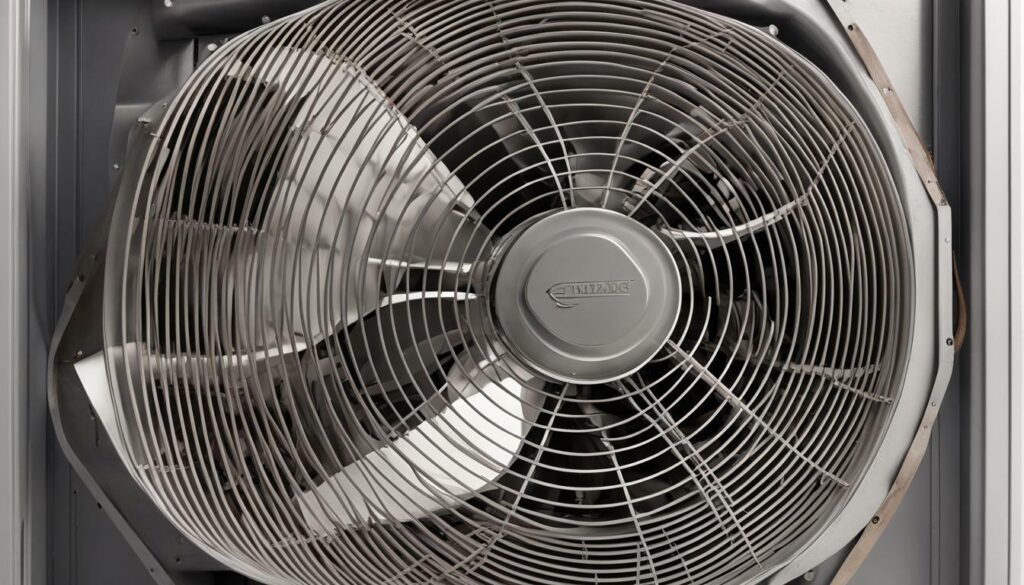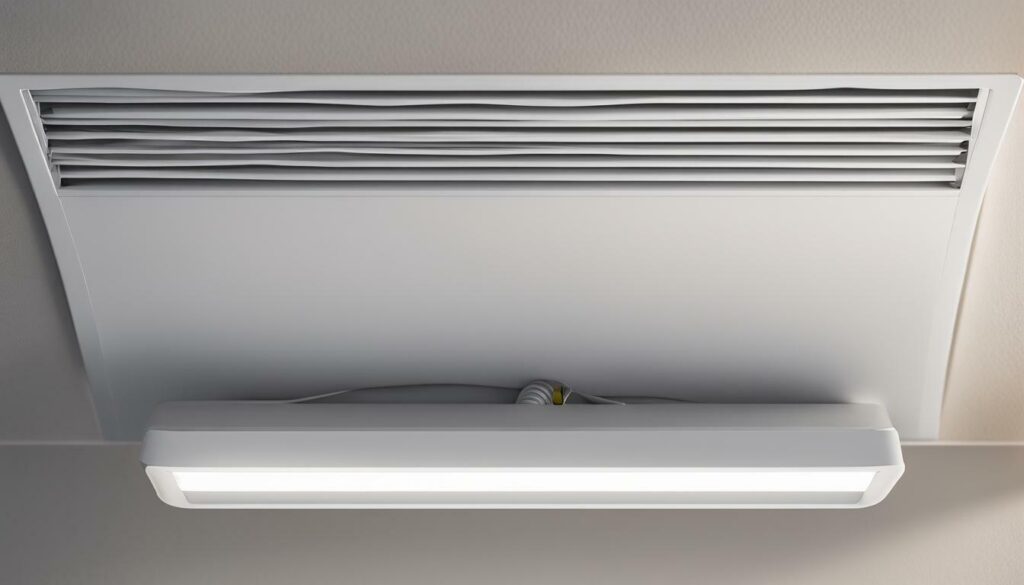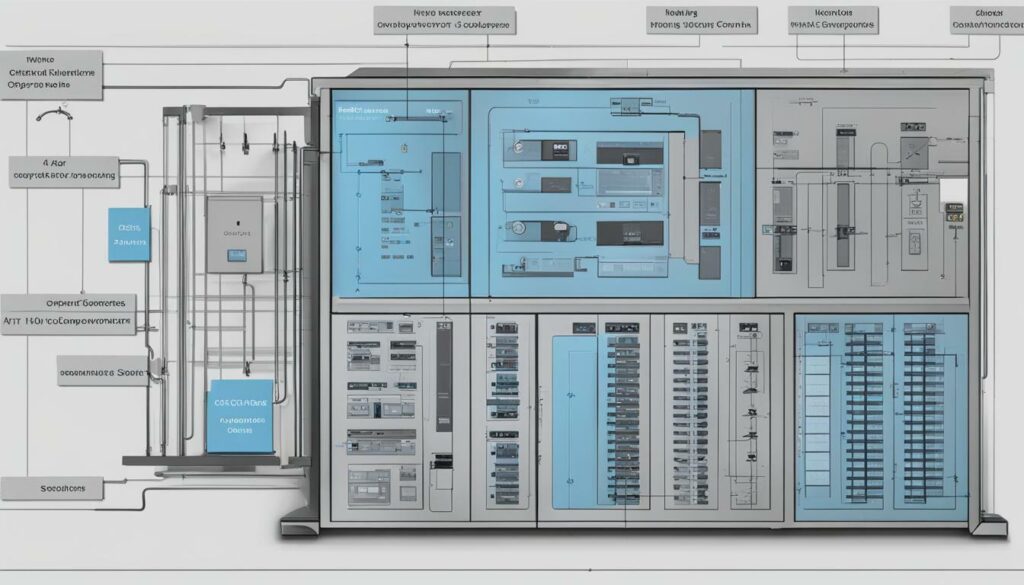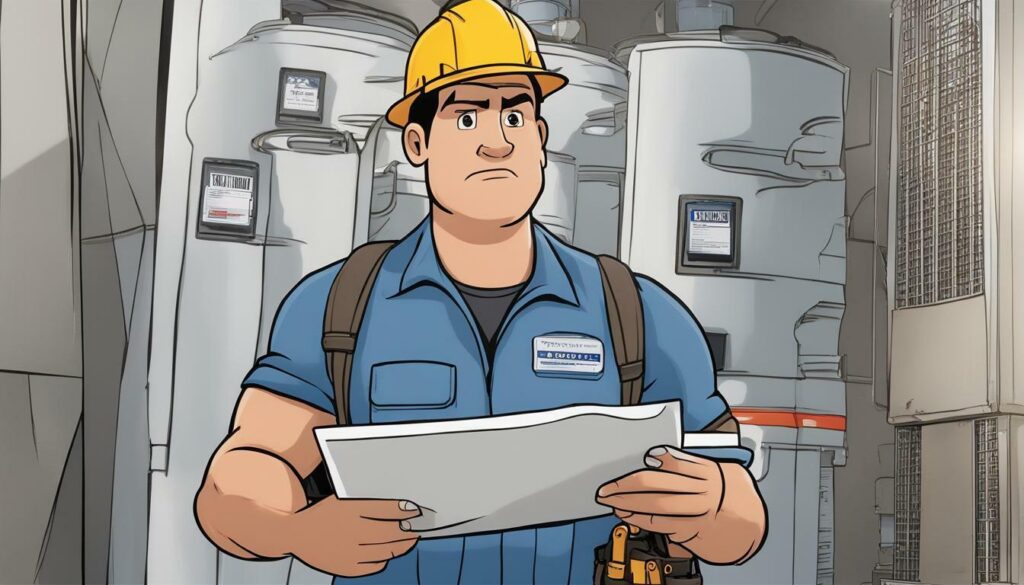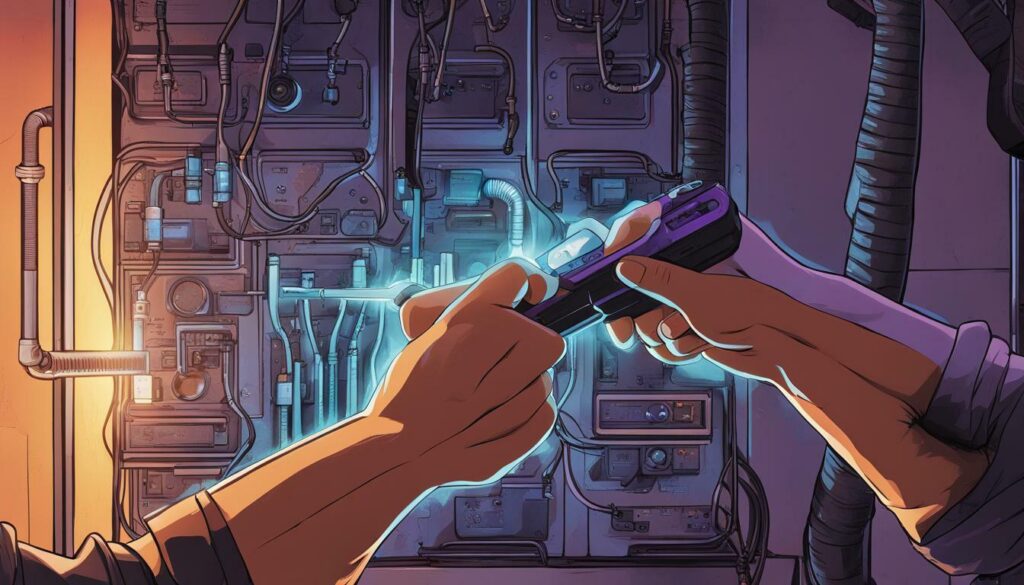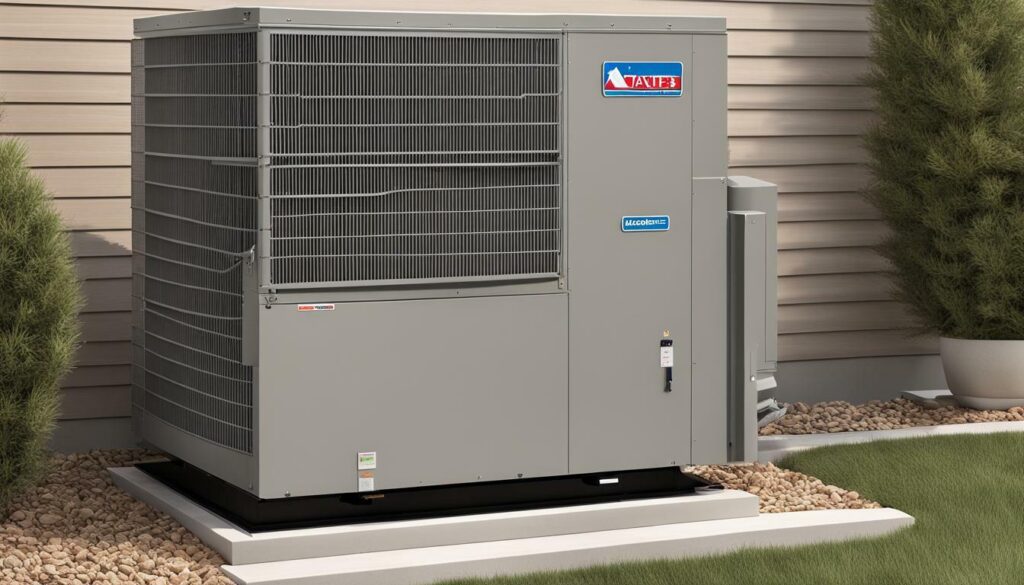If you’re experiencing problems with high HVAC fan speed, you’re not alone. Excessive fan speed HVAC can lead to a variety of issues, from uncomfortable drafts to increased energy bills. Fortunately, by understanding the effects of high HVAC fan speed and following some troubleshooting tips, you can address the problem effectively and restore comfort and energy efficiency to your home.
Key Takeaways
- A high HVAC fan speed can cause uncomfortable drafts, reduced energy efficiency, and increased noise levels.
- Possible reasons for high HVAC fan speed include improper installation, clogged filters, and malfunctioning parts.
- Adjusting the HVAC fan speed to optimal levels can improve comfort, reduce noise, and save energy.
- If troubleshooting tips don’t resolve high HVAC fan speed issues, it may be necessary to seek professional assistance.
Understanding the Effects of High HVAC Fan Speed
When your HVAC fan speed is too high, it can lead to a range of problems, including excessive airflow from the HVAC fan. While airflow is important, it needs to be balanced to ensure optimal temperature and comfort levels.
One of the primary issues that excessive airflow from an HVAC fan can cause is reduced comfort levels. When there is too much airflow, it can make the room feel drafty and uncomfortable. Additionally, high HVAC fan speed can lead to poor energy efficiency, as the system will have to work harder to maintain a comfortable temperature, which can lead to higher energy bills.
Another potential problem that can arise from high HVAC fan speed is increased noise levels. If the speed is too high, the fan can become noisy, which can be distracting and disruptive to everyday activities.
Ensuring that your HVAC system is running at an optimal fan speed is crucial for maintaining comfort and energy efficiency. By addressing issues with HVAC fan speed, you can avoid problems such as excessive airflow and reduce noise levels to create a more comfortable living environment.


Reasons for High HVAC Fan Speed
If you’re experiencing excessive fan noise from your HVAC system, it could be a sign of a high fan speed. Before determining the reason for the issue, make sure to turn off your HVAC system completely.
The first step in HVAC fan speed troubleshooting is to check your thermostat settings. If your thermostat is set to “on” instead of “auto,” the fan will continue to run even when the heating or cooling system is not in use. This can cause a high HVAC fan speed and potentially lead to energy waste and comfort issues.
If your thermostat is set to “auto,” the next step is to check your air filter. A dirty filter can restrict airflow, causing the HVAC system to work harder and increasing the fan speed. Make sure to change your air filter regularly to avoid this issue.
Another possible cause of a high HVAC fan speed is a malfunctioning blower motor. The blower motor is responsible for circulating air throughout your home, so a faulty motor can cause an increase in fan speed. It’s best to seek professional assistance if you suspect a faulty blower motor.
Finally, check for any obstructions in your ductwork. A blockage can cause air to back up and increase the fan speed to compensate for the restricted airflow. You can inspect your ductwork for any visible blockages, but it’s best to have a professional HVAC technician perform a thorough inspection.
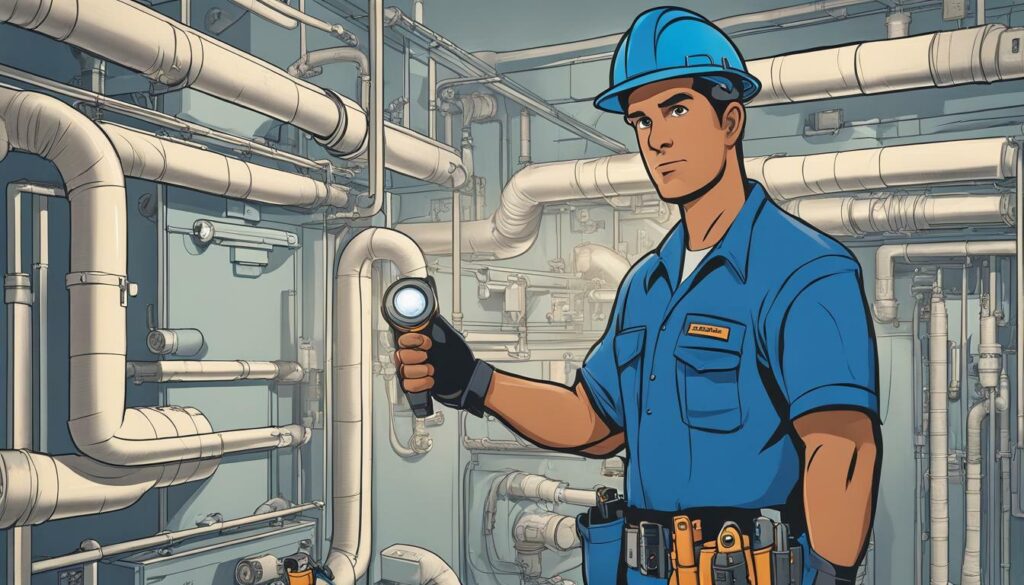

Identifying the reason for a high HVAC fan speed is crucial in resolving the issue and ensuring optimal comfort and energy efficiency. Remember to turn off your HVAC system before attempting any troubleshooting and seek professional assistance when necessary.
Impact of High HVAC Fan Speed on Comfort and Energy Efficiency
When your HVAC fan speed is too high, it can have a negative impact on both your comfort and energy efficiency. While you may think that higher airflow means better cooling or heating, the reality is that excessively high fan speeds can cause more harm than good in the long run.
One of the main problems with high HVAC fan speed is that it leads to excessive air circulation, which can cause drafts and temperature imbalances in your home. This can make some rooms feel too cold or too hot, leading to discomfort and a decreased quality of indoor air. In addition, high fan speed can cause more noise and vibration, which can be disruptive and annoying.
Moreover, high HVAC fan speed can also lead to increased energy consumption and higher energy bills. When the fan is running at a high speed, it consumes more electricity, putting a strain on your HVAC system and increasing your energy costs. This means that even if you feel more comfortable with a high fan speed, you may end up paying more for your energy bills, which is not ideal.
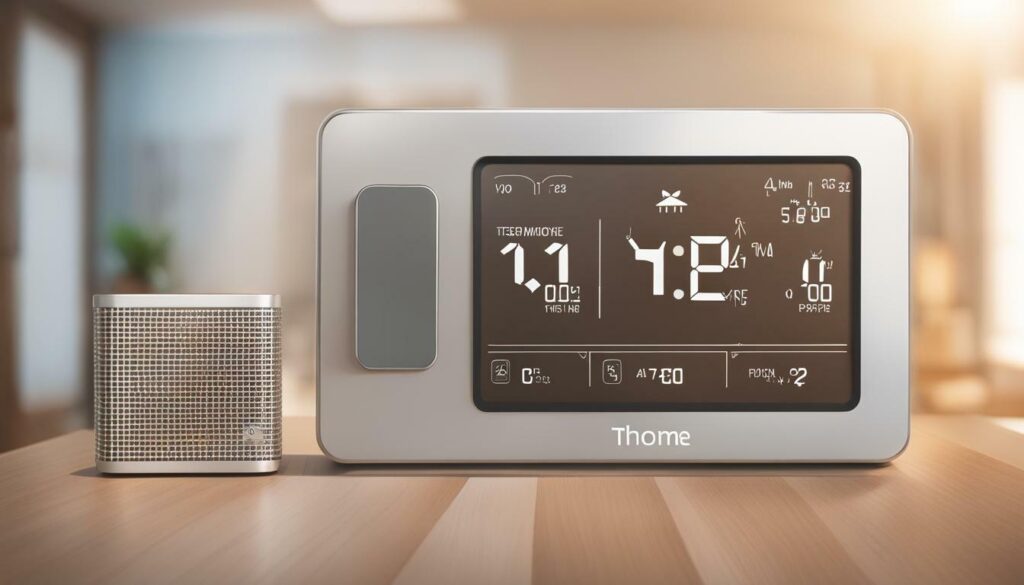

It is essential to find the optimal balance between comfort and energy consumption by adjusting your HVAC fan speed to the right level. By doing so, you can achieve a more comfortable indoor environment while saving energy and reducing your monthly bills.
Adjusting HVAC Fan Speed to Optimal Levels
If you’re experiencing issues with high HVAC fan speed, adjusting it to the optimal level can help you achieve a balance between comfort and energy efficiency. Here are some simple steps to lower your HVAC fan speed:
- Locate your thermostat and switch off the HVAC system.
- Remove the thermostat cover and locate the “fan” switch or button. This typically has two settings – “on” and “auto”.
- Switch the fan setting to “auto” mode. This will enable the fan to cycle on and off with the heating or cooling system, ensuring it doesn’t run continuously.
- If you still notice excessive airflow from the HVAC fan, it may be necessary to adjust the fan speed. Locate the fan speed switch on your thermostat or air handler.
- Gradually lower the fan speed until you achieve optimal airflow and comfort levels. Be sure to monitor the system to ensure it’s not impacting heating or cooling performance.
Adjusting your HVAC fan speed can help reduce noise levels and energy consumption, ultimately leading to lower energy bills. By following these simple steps, you can enjoy a comfortable and efficient indoor environment.
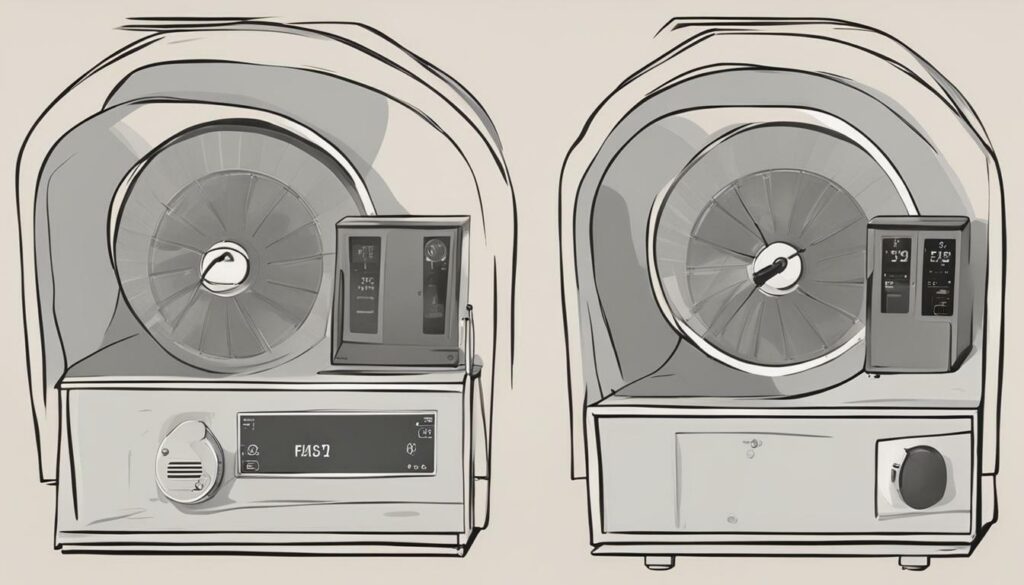

Potential Issues with High HVAC Fan Speed
If you ignore the warning signs of a high HVAC fan speed, it could lead to a range of problems that affect your comfort and energy efficiency. Here are some common HVAC fan speed issues to watch out for:
| Issue | Cause | Solution |
|---|---|---|
| Uneven temperature distribution | High fan speed can cause uneven airflow, leading to hot and cold spots in your rooms | Adjust the fan speed to a lower setting or check for any blockages in the air ducts |
| Loud operation | High fan speed can cause excessive noise levels, disrupting your peace and quiet | Lower the fan speed or replace any damaged parts to reduce noise |
| High energy bills | Running the HVAC fan at high speed constantly can result in a significant increase in your energy consumption | Adjust the fan speed to a lower setting or use a programmable thermostat to control the fan speed based on your needs |
By addressing these issues promptly, you can avoid further damage to your HVAC system and enjoy a more comfortable and energy-efficient home.


Adjusting HVAC Fan Speed to Optimal Levels
If you’re experiencing excessive airflow from your HVAC fan, it may be time to adjust the fan speed. Here’s how to lower your HVAC fan speed for optimal comfort and energy savings:
Step 1: Locate the Fan Speed Switch
Before you can adjust your HVAC fan speed, you need to locate the fan speed switch. This switch is typically located on your thermostat or on the HVAC unit itself. Check your owner’s manual if you’re not sure where to find it.
Step 2: Turn Off the HVAC System
Before making any adjustments, turn off your HVAC system completely to prevent any accidents.
Step 3: Adjust the Fan Speed Switch
Next, use the fan speed switch to adjust the fan speed to a lower setting. This will reduce the amount of air blowing through your vents and create a more comfortable environment in your home.
It’s important to find the right balance between comfort and energy efficiency. Too low of a fan speed can cause inadequate airflow and put strain on your system, while too high of a fan speed can use more energy and create excessive noise.
Step 4: Test Your Settings
After adjusting your fan speed, turn your HVAC system back on and test it out. Listen for any excessive noise and pay attention to how well your home is being heated or cooled. If you’re still experiencing issues, further adjustments may be necessary.
By adjusting your HVAC fan speed to optimal levels, you can enjoy improved comfort, reduced noise levels, and energy savings. Say goodbye to excessive airflow from your HVAC fan and hello to a more comfortable home!
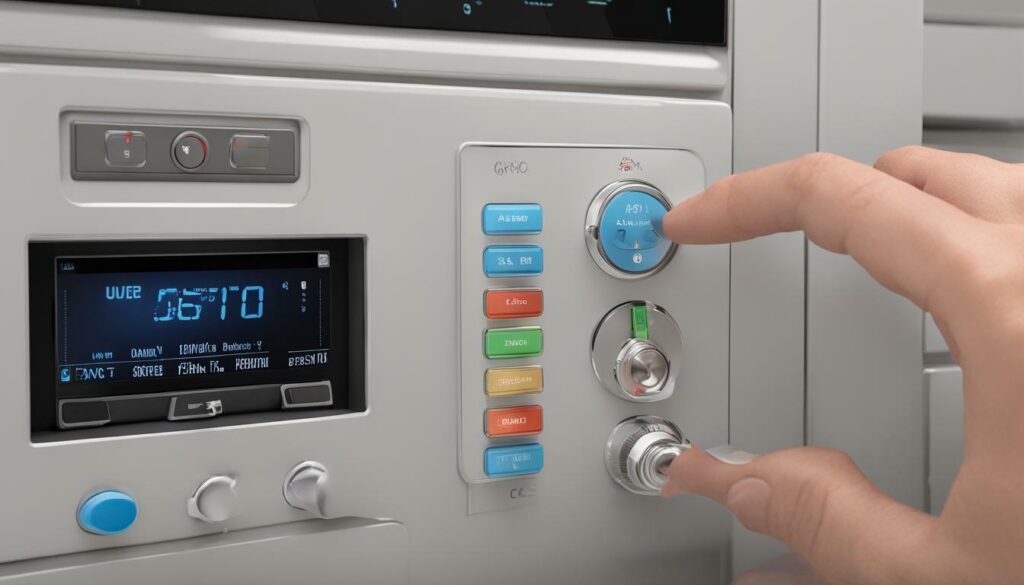

Professional Assistance for Resolving High HVAC Fan Speed
If you have attempted the troubleshooting tips discussed earlier, but are still experiencing high HVAC fan speed, it may be time to seek professional assistance. HVAC systems can be complex and require expert knowledge to properly diagnose and resolve issues.
When seeking professional assistance, look for qualified HVAC technicians who are experienced in HVAC fan speed troubleshooting. They can perform a thorough inspection of your system to identify any underlying issues that may be causing high fan speed. Additionally, they can provide recommendations on how to optimize your system for maximum comfort and energy efficiency.
Some HVAC issues may require specialized tools and equipment, which only professionals possess. Attempting repairs on your own without proper knowledge and tools may lead to further costly damages.
Professional technicians can also ensure that your HVAC system is operating in accordance with local and state regulations. This can help prevent any legal issues that may arise from improper installation or maintenance.
Don’t hesitate to contact an HVAC professional when experiencing high fan speed or any other HVAC issue. With their expertise, they can quickly diagnose and resolve the issue, restoring optimal comfort and energy efficiency to your home.
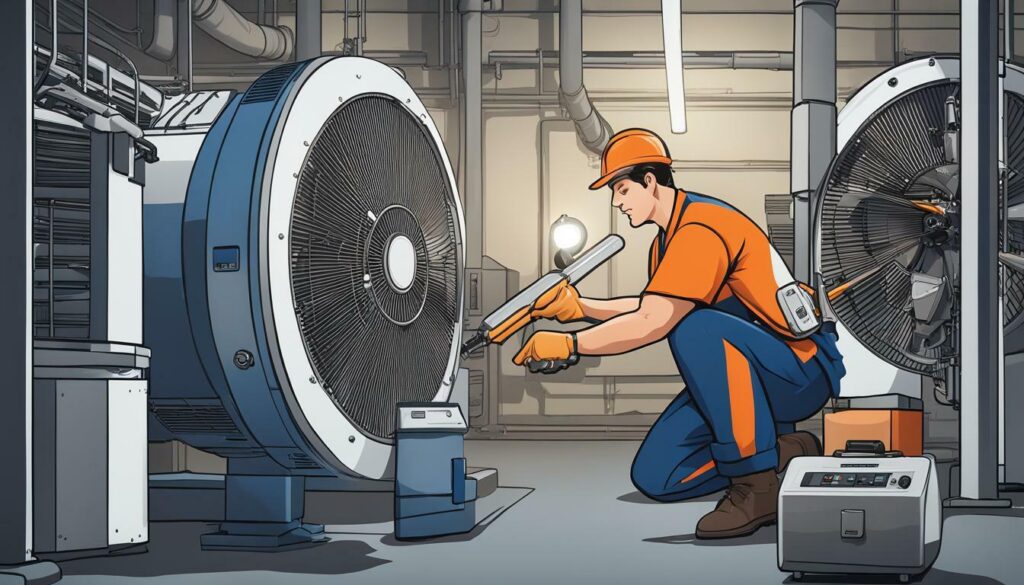

Conclusion
Congratulations, you have now gained a thorough understanding of the problems caused by a high HVAC fan speed and the importance of adjusting it to optimal levels. By following the troubleshooting tips and solutions provided, you can improve your comfort levels while reducing energy consumption and saving on utility bills.
Remember that excessive fan speed HVAC can lead to a range of issues, from poor indoor air quality to increased noise levels and decreased energy efficiency. Therefore, it’s essential to monitor and adjust your HVAC fan speed regularly to prevent these problems.
If you’re still experiencing issues with your HVAC fan speed, don’t hesitate to seek the assistance of a professional. They can diagnose the problem accurately and provide effective solutions to ensure your HVAC system is functioning optimally.
By taking action to address high HVAC fan speed issues, you can enjoy a comfortable and energy-efficient indoor environment while avoiding potential health hazards and costly repair bills. So, take the necessary steps today to optimize your HVAC fan speed and improve your quality of life.
FAQ
Q: How can I tell if my HVAC fan speed is too high?
A: Some signs that your HVAC fan speed may be too high include excessive airflow from vents, increased noise levels, and difficulty in maintaining a consistent temperature in your home.
Q: What problems can high HVAC fan speed cause?
A: High HVAC fan speed can lead to excessive airflow, which can cause discomfort, uneven cooling or heating, increased energy consumption, and potential damage to your HVAC system.
Q: Can I adjust the HVAC fan speed myself?
A: In some cases, you may be able to adjust the HVAC fan speed yourself if your system allows for it. However, it is recommended to consult your HVAC technician for guidance to ensure proper adjustments and prevent any potential damage.
Q: Why is my HVAC fan speed suddenly too high?
A: There can be various reasons for sudden high HVAC fan speed, including a malfunctioning thermostat, a faulty fan motor, or a clogged air filter. It is best to have a professional technician diagnose and resolve the issue.
Q: How can I lower the HVAC fan speed?
A: To lower the HVAC fan speed, you can adjust the fan speed settings on your thermostat, clean or replace clogged air filters, or consult a professional technician for further assistance.
Q: What are the benefits of lowering the HVAC fan speed?
A: Lowering the HVAC fan speed can result in improved comfort, reduced energy consumption, quieter operation, and extended lifespan of your HVAC system.
Q: When should I seek professional assistance for high HVAC fan speed?
A: If you have tried basic troubleshooting steps, such as adjusting the fan speed settings and cleaning air filters, and the high HVAC fan speed issue persists, it is recommended to seek professional assistance from a qualified HVAC technician.
Q: How can a professional help resolve high HVAC fan speed issues?
A: A professional HVAC technician has the knowledge and expertise to diagnose the underlying cause of high HVAC fan speed and provide the necessary repairs, adjustments, or replacements to resolve the issue effectively and ensure optimal system performance.

